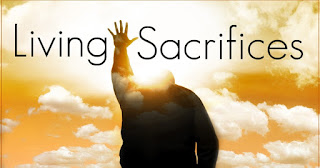What Are You Doing Here?
“What are you doing here, Elijah?” (1 Kings 19:13) (Read the whole context)
Elijah is on the run. His life is in danger. He has embarrassed the queen of the country and she has told him, flat out, she plans to kill him. So he is on the run, questioning his vocation as a prophet of God, questioning God, questioning everything. By the time he gets to a cave on Horeb, "the mountain of God," he is worn out—physically, spiritually, mentally and emotionally. But at that moment, when he has come to the end of himself, that's when God shows up.
God asks Elijah a piercing question—twice. "What are you doing here, Elijah?" And while the purpose of the question to Elijah is different than it is for us, I think it's a question God still asks us. I picture God peering down on Sunday morning into our churches, fellowship gatherings, homes and wherever else God's people meet, and he asks us, "What are you doing here, Christian?"
Sometimes, we think we "go to church" for our own benefit. We talk in terms of "what I got out of the sermon/service" or "I'm being fed." (Or, "I'm not being fed.") We participate only to the level that we get a benefit. Or we take part because we like certain things about the service or the people. The music. The group of people I sit near. Maybe the preaching (though that's less likely!). And if things aren't done the way we like them, we become like Elijah. Do you notice that when God asks him why he is here, both times he complains about his situation? He never answers God's question! Maybe he doesn't know why he's there. Maybe we don't either.
We have let far too many things (idols) get in the way of "why we are here." We have let people, physical objects, styles of worship, personal offense, the color of the carpet or the color of the walls—and innumerable other things—block our worship of God. Because the only real reason we gather is to worship the one who has given us more than we could ever have hoped for, certainly far more than we deserve. If we answer God's question with anything other than, "To honor you," we've missed the point and we're gathering for the wrong reason.
Only he is worthy. Everything else is secondary and, honestly, not that important.
What are you doing here?



Comments
Post a Comment